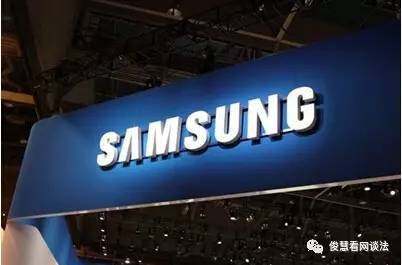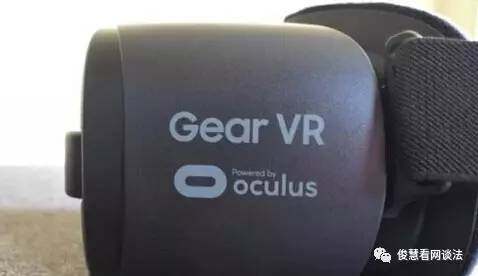Click on the upper right corner and subscribe to Li Junhui’s Baijiahao

Wen / Li Junhui
Shears are constantly chaotic.
This should be the best portrayal of the original VR giant Oculus, a former startup.
Following his defeat in a three-year lawsuit with ZeniMax Media (hereinafter referred to as ZeniMax), the court of first instance was awarded a compensation of 500 million U.S. dollars. Today, Samsung Electronics Co., Ltd., its VR product partner, is also involved in similar alleged infringements. Dilemma.
A few days ago, ZeniMax sued Samsung Electronics to the court and accused the Gear VR, a virtual reality helmet, from infringing its technical rights.
ZeniMax pointed out in the suing document that Samsung Gear VR is a project developed in cooperation with Oculus VR. In the course of the cooperation between the two parties, Samsung Electronics is aware that there is a technical infringement dispute between Oculus VR and ZeniMax. Samsung Electronics continued the development of Gear VR while not obtaining ZeniMax's technology patent license and license.
It can be seen that the reason why ZeniMax filed the Samsung Gear VR with the court is that the product is a product of Samsung's cooperation with Oculus VR, and Oculus VR has been found in court in another patent dispute to constitute infringement against ZeniMax. Therefore, the cooperation between the two products can not rule out infringement suspects.
The First Case of Global VR: The Root of Oculus VR Company's Loss of Litigation is the Violation of Multiple Conventions

In May 2014, less than two months after Facebook announced the acquisition of Oculus VR, ZeniMax filed a lawsuit against Oculus VR for allegedly illegally using its intellectual property to develop a virtual reality system including Rift's head display.
At first, when Oculus VR “married†Facebook with a $3 billion vision, many people thought that the prosecution of ZeniMax might be more of “envy and hateâ€.
Because ZeniMax filed a lawsuit against Oculus VR, the claim amount was once 3 billion US dollars, which is equal to the cost of "marrying down" with Oculus VR.
However, with the trial of the case, many talents discovered that it is not ZeniMax's unreasonable fetch, but Oculus VR does have many wrongdoings.
First of all, Oculus VR CTO John Carmack was originally the co-founder and technical leader of id Software, a gaming company acquired by ZeniMax Media. In August 2013, Karmak announced that he will join Oculus VR as a CTO, while retaining Position at id Software.
The trial information showed that Carmac admitted that he had copied the files from ZeniMax's computer before joining Oculus.
This is precisely one of the reasons why the jury found that Oculus VR constituted a violation of ZeniMax.
Second, Palmer, founder of Oculus VR, had signed a confidentiality agreement with ZeniMax. Obviously, the follow-up actions of Oculus VR and Palmer indicate that they may have violated the relevant agreement.
Samsung GearVR gets involved: GearVR is the result of deep cooperation between Samsung and Oculus

On February 1, 2017, a jury in the District Court of Dallas, Texas, found that the computer code used by Oculus VR infringed the copyright of ZeniMax. In addition, Oculus VR also violated the confidentiality agreement signed with ZeniMax Media and improper use of ZeniMax. The trademark.
As a result, a jury in the District Court of Dallas, Texas, ruled that Oculus VR must pay $500 million to ZeniMax.
Simply put, the key to Oculus VR's defeat in ZeniMax in litigation is that the code used by Oculus VR violates ZeniMax's copyright.
Samsung Gear VR was also sued by ZeniMax after losing its lawsuit with Oculus VR. The root cause is: Gear VR is a product developed in deep cooperation between Samsung and Oculus VR. Since the Oculus VR product code has constituted a violation of ZeniMax, then Samsung's products with Oculus VR are difficult to exclude from infringement.
Therefore, Samsung Gear VR was sued by ZeniMax and it was a chain reaction. On the one hand, in the case of ZeniMax v. Oculus VR, the latter was found to have obtained information or technology from ZeniMax in an improper manner; on the other hand, Samsung Gear VR is a product of Samsung's cooperation with Oculus VR.
It is worth mentioning that the relationship between Oculus VR and ZeniMax is different from that of ZeniMax. As a third party, Samsung can favor either the Oculus VR or ZeniMax.
Therefore, ZeniMax sue Samsung, and it is more inclined to “sell the stoneâ€. On the one hand, it is tested whether the cooperation relationship between Samsung and Oculus VR is close enough, whether there is any possibility of cooperation between the two parties. On the other hand, it continues to exert pressure on Oculus VR. Highlight their own voice or influence in the field of VR.
After all, prosecution is only a means. It is not ruled out that ZeniMax may reach a settlement with Samsung during the litigation process. For ZeniMax, curbing the development of Oculus VR and strengthening its position in the VR field is also the reason for its many lawsuits.
(Author: China University of Politics and Intellectual Property Research Center researcher Li Junhui special, long-term focus on Internet-related policies, intellectual property and e-commerce, legal and regulatory issues.)
Semiconductor Moly
Semiconductor Moly
YANGZHOU POSITIONING TECH CO., LTD. , https://www.cnchipmicro.com